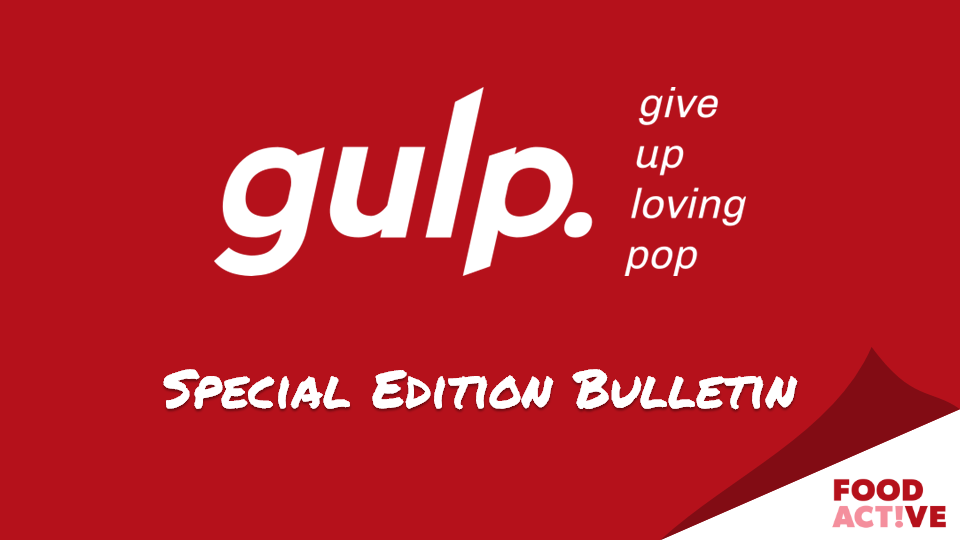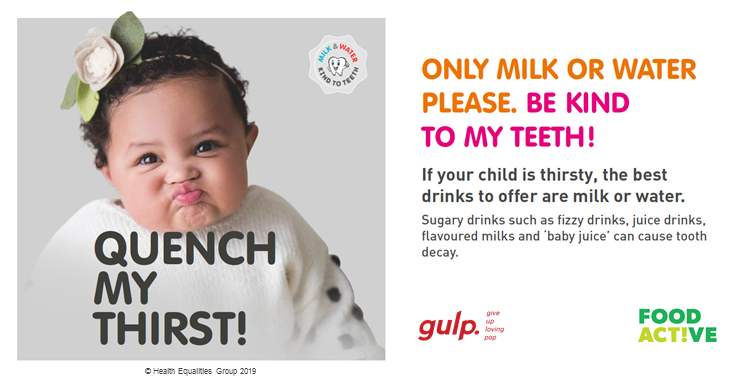Today marks one year since we launched our Kind to Teeth campaign and this #NationalSmileMonth, we are again promoting the campaign to help tackle poor oral health in the early years across the North West and beyond.
The Give Up Loving Pop (GULP) early years campaign, ‘Kind to Teeth’ aims to improve knowledge and raise awareness of the health risks associated with consumption of sugary drinks in under-fives. The ‘Kind to Teeth’ campaign was launched by Food Active in 2018 to mark National Smile Month and was supported on social media by eight commissioning local authorities across the North West. In addition, a number have delivered the campaigns locally by disseminating ‘Kind to Teeth’ resources such as concertina leaflets and pop up banners in children’s centres, dental practices and GPs.
Across the UK, the state of dental health in the UK is worsening. Data from the National Oral Health Survey shows that on average, 23.3% of 5-year olds have some experience of obvious decay, the average number of teeth that were decayed, missing or filled was 3.4 (at age five, children normally have 20 primary teeth)[1] However, there is large variations between regions in England, with the North West being the greatest with over one third of children (33.9%) having some experience of obvious decay by the age of five[2].
Monday 13th May 2019 marks the start of this year’s National Smile Month, and we will again be supporting the campaign by encouraging local authorities across the North West to promote Kind to Teeth in their areas and to help tackle poor oral health in the early years, by promoting healthier drink choices such as milk or water.
You can find out more about the Kind to Teeth campaign on our website: http://www.giveuplovingpop.org.uk/kind-to-teeth/
If you would like to get in touch with one of the team to discuss accessing the Kind to Teeth campaign materials, please email info@foodactive.org.uk
[1] Public Health England (2018) National Dental Epidemiological Programme for England. London: Crown Copyright
[2] Public Health England (2018) National Dental Epidemiological Programme for England. London: Crown Copyright


